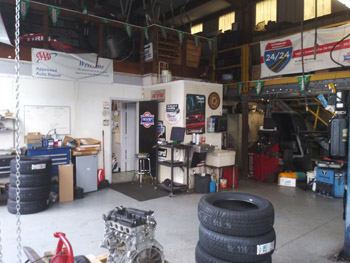Featured
Brakes are arguably the most essential safety function of any vehicle. Without reliable brakes, even the most effective automobile can end up being a threat on the roadway.
- The Relevance of Regular Brake Inspections. Brakes go through continuous wear and tear with every use, whether you're driving at high speeds on the highway or travelling via city roads. Over time, brake pads, rotors, and other components put on down, which can impact stopping efficiency. Without routine inspections, you may not see the progressive reduction in performance till it's too late.
Regular brake examinations enable you to capture issues early, making sure that your brakes continue to be responsive, reputable, and secure. Prompt inspections can likewise conserve you money by attending to small problems before they become pricey fixings.
- Common Signs That Your Brakes Required Interest. While regular brake inspections are very important, there are some caution signs you can keep an eye out for to recognize when it's time to set up a check-up:
Squeaking or Grinding Appears: Shrill squeaks or grinding sounds when applying the brakes are usually indicators that your brake pads are broken and require replacement. Vibration or Pulsation: If you really feel resonances in the steering wheel or the brake pedal, it might suggest warped blades, which may require resurfacing or replacing. Soft or Squishy Brake Pedal: If the brake pedal feels unusually soft or spongy, there may be air in the brake lines or a problem with the master cyndrical tube. Pulling away: If your vehicle pulls to one side while stopping, this can be caused by irregular brake pad wear or a concern with the brake fluid. Increased Stopping Range: If it takes longer to stop than typical, it might show that the brake pads are worn, the fluid is low, or the rotors are damaged. If you notice any of these signs, it's finest to have your brakes inspected quickly.

- Key Elements Checked During Brake Inspections. During a brake examination, a specialist will check several vital parts of the braking system to make sure whatever is working appropriately. Right here are the essential parts included:
Brake Pads: One of the most typical factor for inadequate stopping performance is damaged brake pads. Checking the density of the pads is a concern during every evaluation. Brake Rotors: Rotors need to be smooth and devoid of grooves or fractures. Any type of significant damages to the rotors can cause compromised stopping effectiveness and uneven pad wear. Brake Fluid: Low or infected brake fluid can impair braking performance. The service technician will certainly check the liquid levels and high quality and change it if necessary. Brake Lines and Hose pipes: Brake lines should be devoid of leaks or cracks. Any type of damages to the lines can result in loss of brake fluid, leading to brake failing. Brake Calipers: The calipers use pressure to the brake pads. They need to be examined for indications of wear or leaks to guarantee they are functioning correctly. Consistently inspecting these elements aids maintain your brake system in peak problem, permitting you to quit your automobile safely and efficiently.
- How Frequently Should You Have Your Brakes Evaluated? The general recommendation is to have your brakes evaluated at the very least yearly or every 12,000 miles, depending on your driving routines. Certain driving conditions may need even more constant inspections:
Rush Hour: If you typically drive in stop-and-go web traffic, your brake pads will use down faster. Mountain Driving: Driving on steep roadways needs even more regular braking, which can trigger your brakes to wear more promptly. Towing or Hauling Heavy Loads: If you routinely carry heavy loads, your brakes will experience a lot more tension and need even more regular assessments. If you notice any one of the caution signs mentioned earlier, don't wait on the following scheduled evaluation-- have your brakes checked right away.
- The Repercussions of Overlooking Brake Inspections. Neglecting routine brake evaluations can cause severe effects. A failing brake system can lead to lowered stopping power, which increases your threat of mishaps. Overlooking brake maintenance can additionally bring about a lot more expensive repair work. If you postpone changing worn brake pads, the damage could extend to the blades, leading to the demand for rotor substitute, which is a far more costly repair service.
In the worst situation, driving with damaged brakes can result in complete brake failure, placing you and various other drivers in jeopardy. Routine brake evaluations are a little financial investment that can conserve your life and prevent costly repair work.
- Final Thought: Remain Safe with Routine Brake Inspections. Brakes are not something you intend to take opportunities with. A trusted stopping system is necessary for safe driving, and normal brake inspections are a basic way to ensure that your car quits when you require it most. By remaining on top of brake maintenance, looking for warning signs, and having your brakes evaluated at the suggested intervals, you'll protect both your car and your safety.
Don't wait up until your brakes start to stop working-- timetable normal brake inspections and maintain your car in optimum condition for many years to find.
Latest Posts
Check Out Oil Changes & More: Full Services Guide from Montclare Auto Repair
Experience WyHy Federal Credit Union – Low Rates for Wyoming Residents
Explore Your Financial Partner at WyHy – Financial Freedom for Your Goals
More
Latest Posts
Check Out Oil Changes & More: Full Services Guide from Montclare Auto Repair
Experience WyHy Federal Credit Union – Low Rates for Wyoming Residents
Explore Your Financial Partner at WyHy – Financial Freedom for Your Goals
